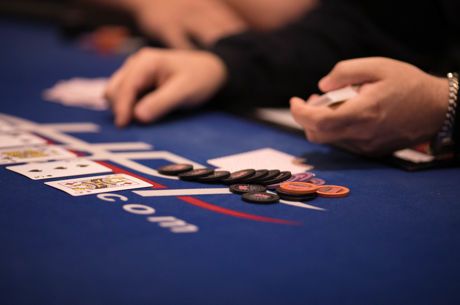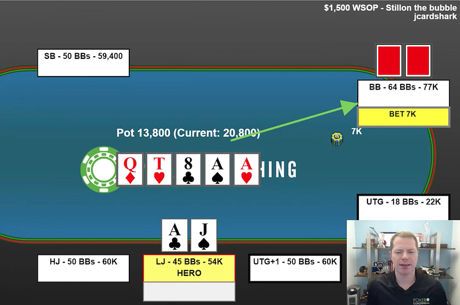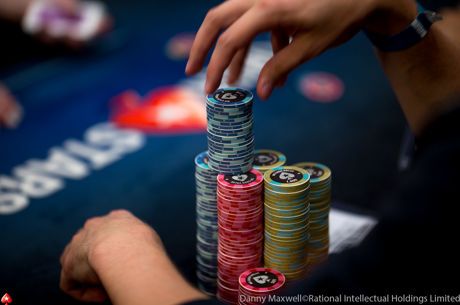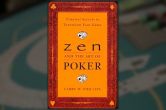How Poker Is Uniquely Different From Other Competitions

Imagine a professional golfer �� one of the world's best �� approaching the tee box. It's a difficult par 3, with a long carry over a water hazard. He surveys the hole, then says calmly, "I'm going to skip this one. I'll meet you at the next hole."
At the next tee box, a par 4 with a sharp dogleg to the left, he glances briefly down the fairway and announces again that he's not going to play.
This goes on for five more holes. Frustrated, his opponents demand an explanation. "How can such a highly ranked player skip all the difficult holes? The rest of us are getting worn out on this tough course, but you don't see us backing down from the challenge!"
"That's right," says our hero. "The reason I'm ranked higher than you is I only play the holes I can win."
Sounds absurd, right? Not to winning poker players.
Folding is Radically Counterintuitive
The stark contrast between poker and other competitions is revealed by Larry Phillips in his 1998 classic Zen and the Art of Poker.
"In poker," Phillips writes, "you're going to be cold a lot more often than you're going to be hot." Because the rules allow a player to fold, usually before wagering a single chip, "this makes poker �� at least a great deal of the time �� a game of withdrawing, not the thrusting, attacking game that it may appear to the casual observer."
Phillips observes how "the Western mind, generally action-oriented, recoils at this sort of thinking; it has trouble grasping such an idea. Indeed, it seems to go against the grain of logic. How can you win a game you drop out of?"
The Culture of Competition
Growing up in an intensive sports and competition culture as we do, we instinctively know that winning requires persistent, active engagement. The golfer must play every hole. Indeed, most sports carry an expectation of continuous effort. Reality TV has reduced singing and cooking and dating to competitions. Winners continue competing; losers drop out.
Folding feels unnatural. While folding isn't the same as dropping out, you might become so discomforted by repeated folding that you become impatient, deviate from your game plan and begin making mistakes.
The mental muscle memory that develops over a lifetime immersed in a competitive culture can set up a new poker player for massive failure. Folding feels unnatural. While folding isn't the same as dropping out, you might become so discomforted by repeated folding that you become impatient, deviate from your game plan and begin making mistakes.
Even the loosest players sometimes fold before the flop. But once they don't fold, their mental muscle memory makes it harder to fold at the next opportunity. And the next after that. This is how calling stations are born.
Bluffers evolve from the same competitive habits. Once in a hand, they compete to win at all costs. If the only way to win is to run a big bluff, they tell themselves "that's what winners do." Only the weak give up, right?
Wrong!
Poker is Not Golf
If poker were like golf, you would play every hand. Instead, you fold, fold, and fold again. In cash games, you might sit for hours without playing a significant pot. The challenge is to condition your competitive nature to feel like folding is competing. First and foremost, know that frequently choosing not to engage is often the key to winning.
Unlike golfers, as poker players you get to conserve energy and wait for the hands that give you an edge. You can win two ways �� with superior holdings or through well-executed bluffs. To be sure, you still won't always win. If necessary, you can abandon a pot after a bad flop or turn card. The poor golfer doesn't get similar relief after his ball lands in a hazard or his opponent hits a perfect approach.
More Passive Than Passive
The passive end of the passive-aggressive continuum is full of checking and calling �� actions that put no pressure on your opponents. There is a tendency to think of folding before the flop as even more passive, by simply opting out.
In reality, folding is the most aggressive way to close the gate to your stack. Think of folding as an aggressive adjustment, like a pressing defense in a team sport that denies the opposing offense any chance of scoring.
Frequent folding also allows you to bet more aggressively on those hands you do in fact decide to play. You'll have stronger cards, more confidence, and a table image that naturally backs your opponents down.
Conclusion
Poker offers the unique and counterintuitive option of competing selectively. Living in a competitive culture conditions the mind to resist this special privilege. Instead, learn to embrace this difference by reframing folding as an aggressive action. Folding is competing. Folding denies your opponents any chance of taking your chips when they have an edge.
The Zen-like stillness that follows each fold also conserves mental energy for use on the hands you decide to play, on your terms, with favorable cards and position.
David Bass mostly plays in live no-limit hold��em cash games and has been writing about poker since 2012. You can follow him on Twitter @KKingDavidPoker or enjoy his blog, They Always Have It, at https://kkingdavid.com/.









